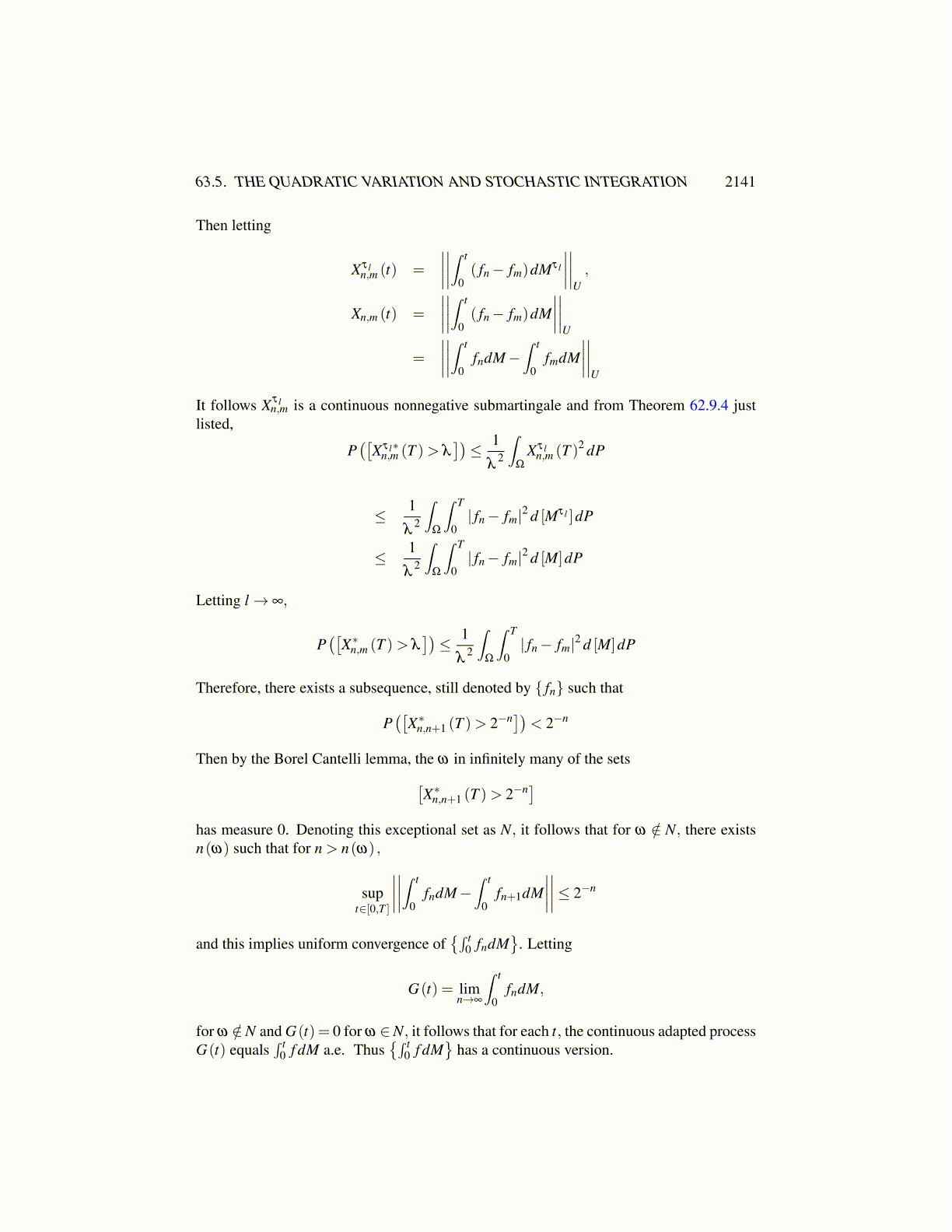
63.5. THE QUADRATIC VARIATION AND STOCHASTIC INTEGRATION 2141
Lemma 63.5.4 Let M,N be continuous local martingales, M (0)=N (0)= 0 having valuesin a separable Hilbert space, U. Then
[M+N]1/2 ≤([M]1/2 +[N]1/2
)(63.5.17)
[M+N]≤ 2([M]+ [N]) (63.5.18)
Also, letting νM+N denote the measure obtained from the increasing function [M+N] andνN ,νM defined similarly,
νM+N ≤ 2(νM +νN) (63.5.19)
on all Borel sets.
Proof: Since (M,N)→ [M,N] is bilinear and satisfies
[M,N] = [N,M]
[aM+bM1,N] = a [M,N]+b [M1,N]
[M,M] ≥ 0
which follows from Corollary 63.3.3, the usual Cauchy Schwarz inequality holds and so
|[M,N]| ≤ [M]1/2 [N]1/2
Thus
[M+N] ≡ [M+N,M+N] = [M,M]+ [N,N]+2 [M,N]
≤ [M]+ [N]+2 [M]1/2 [N]1/2 =([M]1/2 +[N]1/2
)2
This proves 63.5.17. Now square both sides. Then the right side is no larger than
2([M]+ [N])
and this shows 63.5.18.Now consider the claim about the measures. It was just shown that
[(M+N)− (M+N)s]≤ 2([M−Ms]+ [N−Ns])
and from Corollary 63.3.3 this implies that for t > s
[M+N] (t)− [M+N] (s∧ t)
= [M+N] (t)− [M+N]s (t)
= [M+N− (Ms +Ns)] (t)
= [M−Ms +(N−Ns)] (t)
≤ 2 [M−Ms] (t)+2 [N−Ns] (t)
≤ 2([M] (t)− [M] (s))+2([N] (t)− [N] (s))